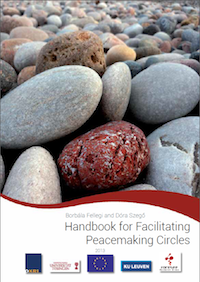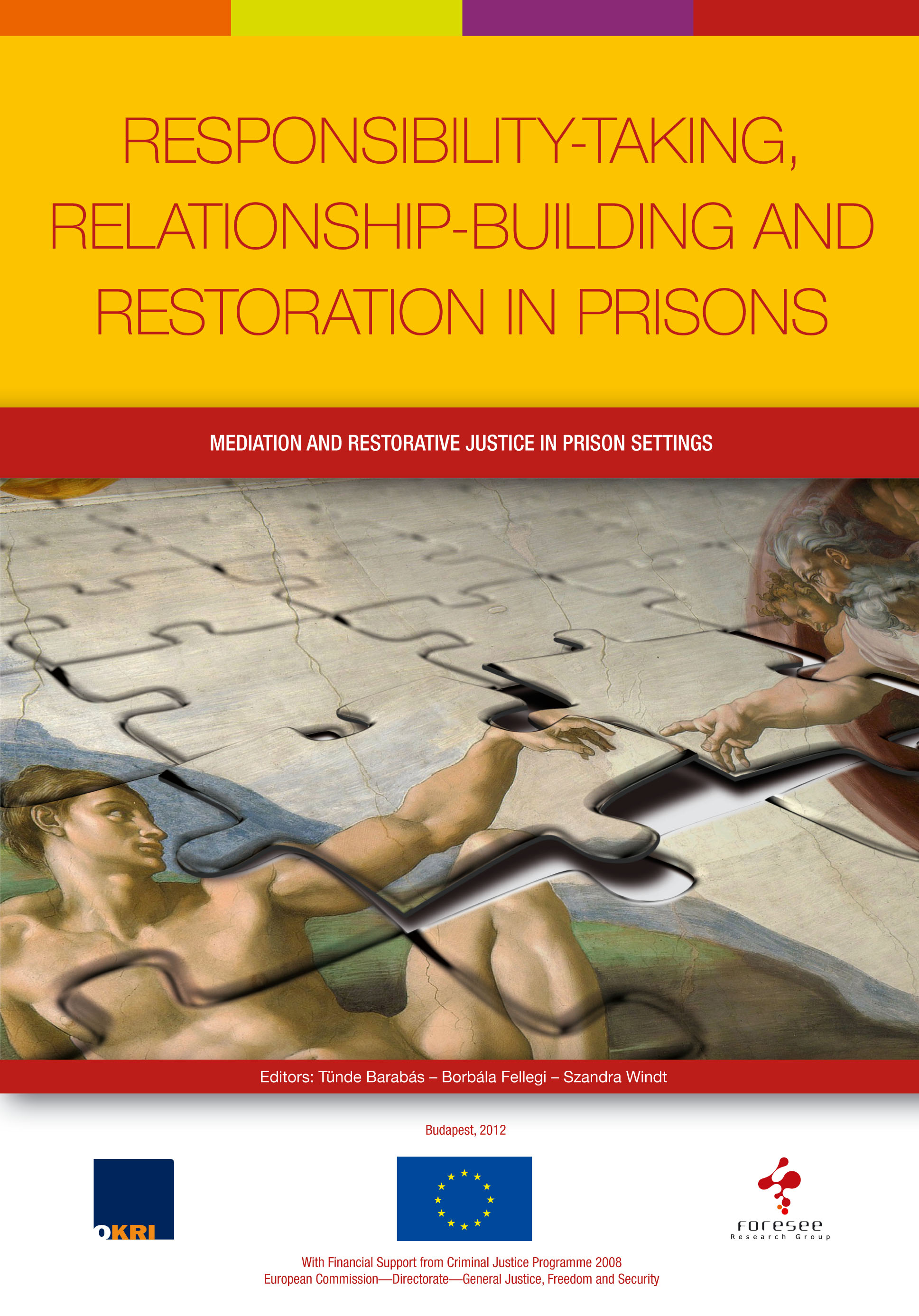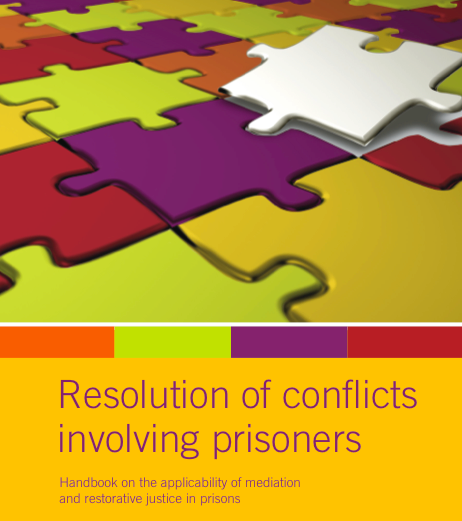
Research
Scientific work and research are our most important activities. Thanks to its specialists in the relevant research fields, Foresee can conduct qualitative and quantitative research tailored to its projects and clients’ needs in the areas of sociology, criminology, social policy, law, political science, economics, psychology and communication science.
The CEO of Foresee, Dr. Borbála Fellegi - as a researcher and consultant in social policy and criminology – is a committed and acknowledged professional. Her main research field is the sociology of conflicts with special focus on the potential of mediation and restorative justice in criminal matters. Her other research activities relate mainly to issues of education and ethnic minorities. For detailed information about Borbala Fellegi’s research work and publications click here.
2023. 04. 10
|
The IMPROVE project sets out to reinforce the fight against domestic violence by developing several tools to increase reporting and detection of domestic violence by empowering the victims to understand their rights to services and justice. Besides, it will support the police authorities, civil society organisations and other frontline responder organisations in enhancing their competencies to utilise innovative solutions which will enable and accelerate policy implementation.
Innovations produced by IMPROVE are based on applied research that constructs a pioneering conceptual approach which efficiently addresses diverse identities of the survivors, the underserved, vulnerable and marginalised individuals as well as multiple forms and situations of domestic violence.
IMPROVE stands for “Improving Access to Services for Victims of Domestic Violence by Accelerating Change in Frontline Responder Organisations”. Project Impacts of the IMPROVE project |
2022. 06. 30
|
In our interpersonal relations, both in the communities surrounding us and as part of the processes taking place on a societal level, we encounter conflicts and suffer “bruises”—the wounds that these conflicts inflict. The parties concerned can talk about the injuries suffered or can avoid each other; they can get closer to or further away from each other. This article features models of a Reconciliation Spiral and a Distancing Spiral that identify a range of points in each process that can help us understand the... |
2022. 06. 30
|
In our interpersonal relations, both in the communities surrounding us and as part of the processes taking place on a societal level, we encounter conflicts and suffer “bruises”—the wounds that these conflicts inflict. The parties concerned can talk about the injuries suffered or can avoid each other; they can get closer to or further away from each other. This article features models of a Reconciliation Spiral and a Distancing Spiral that identify a range of points in each process that can help us understand the dynamics that can drive movement toward one or the other. The models are supported by established research in the field, the author’s... |
2020. 06. 10
|
Article by Dóra Szegő, Researcher of the Foresee Research Group According to the statistics, in Hungary on an average three women are killed by their partners in a month. Since the IMPRODOVA research has started (May 2018), several fatal domestic violence (DV)... |
2018. 07. 09
|
The Budapest Centre is pleased to announce the release of the Summary Study of its year-long project in which Foresee Research Group was also a partnering organisation: “Prevention of radicalization in the prison-system” (BBA-5.1.6-16-2016-00001) co-financed by the Internal Security Fund of the European Union. The strengthening of radicalization and extremism is a new international trend. Its prevention, the development and harmonization of relevant capabilities is in the interest of international and national communities. The so called „vulnerable” groups of societies, in particular persons with... |
2018. 05. 31
|
This 5 year long interdisciplinary research project, led by Dr. Petra Bárd will do an international comparative analysis of hate crime regulations in EU countries. Borbala Fellegi, Foresee researcher feels privilege to be part of one of ELTE's Lendület Research Groups led by Dr. Petra Bárd. This research... |
2017. 06. 01
|
The Foresee Research Group and our researcher, Dóra Szegő also took part in the project of the Helsinki Committee aiming at facilitating the communication and coordination between legal practitioners and building and strengthening the capacity of stakeholders on the international and EU standards on the rights to access to a lawyer and legal aid of suspects and accused in criminal proceedings. The Hungarian Helsinki Committee is a partner in the international project “Strengthening procedural rights in criminal proceedings: effective implementation of the right to a lawyer/legal aid under... |
2017. 02. 12
|
Borbala Fellegi was among the presenters at the workshop organised by the Debrecen Reformed Theological University and the Debrecen University Archeological Research Group. The workshop, entitled as "Forgiveness and Reconciliation" was a milestone within the series of "interdisciplinary emotion-research" and of the 500th anniversary of the Reformation.
Philosophers, researchers of theology, political sciences, literature, historians and criminologists came together to think on the complexities of forgiveness and reconciliation from different angles, sources, and by various methods. Borbala Fellegi talked about her experiences from the... |
2016. 06. 07
|
Source: http://www.migraciokutato.hu/hu/2016/06/06/preventing-violent-radicalisation/ The Migration Research Institute and the National University of Public Service held a workshop on preventing violent... |
2016. 11. 03
|
From 2011 to 2013, five partners (CY-DE-ES-FR-TR) proposed ESM project based on the education of sentenced minors. Partners observed that the situation at the end of the sentence escaped from any protocol and /or coaching process which led the youth quickly to reproduce crimes so to enrol them in a "career of recidivism" and go back to an institution where sometimes violence makes them recognized and accepted as leaders (although it can be negatively ignored by their family for the same reasons). Partners then agreed that a number of factors observed during this two years period will need to be explored through studies, research and investigations leading to come to operational recommendations.
Some partners from the initial project decided to continue their work proposing ESM-YA (sentenced Young Adults too) for 2015/2016 and expanding partnership that integrates complementary missions (probation service, centres for social work, charity NGO for ex-prisoners) so to be able at any time of... |
2015. 07. 04
|
Invited by the Ministry of Internal Affairs, Foresee research Group together with Focus and Inhall Studio carried out a research about the reintegration of inmates. The research featured focus groups, interviews and surveys.
During the project, 45 inmates and 35 penal institution workers took part in a roughly 2 hour long interview each, and around 500 inmates filled out surveys. |
2014. 12. 14
|
On the 6th and 7th of November 2014 Foresee Research Group in cooperation with the Institute for the Sociology of Law and Criminology (IRKS), Austria organised a workshop „Potentials in Peacemaking” – Conflict resolution in intercultural setting in the CEE region.
The aim of the workshop was to present the preliminary findings of the action research applied in Kakucs village as part of the ALTERNATIVE project (Restorative justice in intercultural settings -... |
2014. 09. 03
|
International workshop presenting the preliminary findings of the Hungarian and Austrian action research sites in the ALTERNATIVE project A critical dialogue about the potential of restorative justice approaches (RJ) to peaceful co-existence in intercultural contexts in the CEE region on 6-7 November 2014 in Budapest, Hungary. Thinking out Loud about Justice and Security The conference is organised by the Foresee Research Group in partnership with the Institute for the Sociology of Law and Criminology (IRKS), within the framework of the |
2014. 06. 19
|
Workshop for the Hungarian Society of Criminology Dr. Borbala Fellegi and Erika Magyar presented “Observations in applied pace-making circles model in Hungary” on the 3rd of June 2014. They were talking about the experiences of the two-year-long pilot project - run between 2011-2013 - in which three county’s judicial mediators in... |
2015. 07. 03
|
The Hungarian Helsinki Committee conducted a research, entitled: „Last Among Equals – The equality before the law of vulnerable groups in the criminal justice system”. The project’s objective was to examine whether in its present form the Hungarian justice system guarantees the equality before the law of Roma and non-Roma defendants. Based on the criminal case files, the penitentiary documentation, the inmates’ own experience and the penitentiary staffs’ opinion... |

























